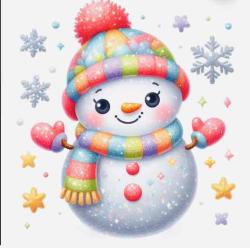Distortion 8. Labelling

Hi everyone! I hope you are doing well. Time for another cognitive distortion post. Today we will be talking about ‘Labeling’. Labeling can be seen as a more extreme form of overgeneralization. As the name suggests, it involves assigning labels to yourself, others, and events.
Examples of labeling:
Classifying someone as innocent or sneaky based on one interaction.
Thinking you are stupid for not doing well in a specific field
Believing someone else is not competent based on one or two skills alone.
Like most cognitive distortions, it will at times overlap with other distortions such as generalization and binary thinking (black-and-white thinking). What makes it stand out is the focus on labels.
What we can learn from this distortion is to pause when we put a label on ourselves, someone else, or something, especially a negative label, and truly reflect on the validity of that label. Is your friend really awful for ignoring you or is he struggling to cope with his changed environment and as a result unable to respond to you?
You may think why you would want to stop labeling. Because it paints a false picture of reality and stops you from seeing things as they are and many times makes you more miserable than you have to be. When we label someone, something, or even ourselves, it really disrupts our peace and at times makes it hard for us to appreciate people and even our own selves. People and situations are often too complex to fit into these labels.
A better way of seeing things is to label behaviors rather than individuals, this way you can actually provide constructive feedback or even work on fixing those behaviors within you. If you believe you suck at making friends, that's not helpful but if you reflect on it and realize you have trouble starting conversations, you can now work on it without feeling poorly about yourself. It's also more specific and therefore more actionable.
Let us again practice reframing our thoughts! For this distortion, it is helpful to reflect on why you gave it the label and what facts/observations can oppose the label so you can see the whole picture
We will use the same technique we have been using in other posts:
📢Points of Action:
Find out your personal hit rate (how accurate your negative assumptions are), don’t just assume, look into your past and get an accurate percentage. (You can skip this if you recall yours from our last posts)
Counter your negative thoughts with counter-positive thoughts based on logic/facts/experience.
Reflect on a time when you labeled something or someone and later changed your mind. Please share with us!

@Hope
Negative Thought: I am a bad student because I failed the test.
Cognitive Thought: Failing one test does not make me a bad student. I can learn from this experience and do better next time. I should use this to figure out how to study and prepare for the next test so I can ensure I do the best I can to pass the test.
